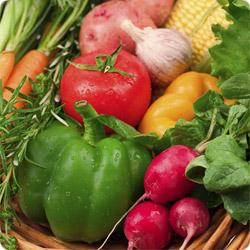What are Super Foods? They are ordinary foods with amazing properties that have clinical research to prove that their antioxidant's fight cancer and other diseases. Revising your diet can make the difference between living an energetic life or the development of chronic diseases. A nutritious diet comprising a variety of super foods will help you fight disease, maintain your body weight, and live a longer life.
An old adage says, ‘you are what you eat.’ If your diet is loaded with unhealthy foods, you’re likely to end up unhealthy. However, if you choose nutrient-rich foods, you can expect overall wellness while treating common health ailments. Acording to researchers citing figures from the World Health Organization, diet was found to be the most important lifestyle factor in up to 80 percent of diseases such as cancer, heart disease and diabetes.
Your diet, like everything else in life, requires a good balance to be successful. Listed below are some super foods in each group we humans need to achieve a healthy, balanced diet and fight certain diseases.
Protein Super Foods
- Eating protein is essential for human health and provides certain amino acids that the body cannot manufacture.
- Lean meats, fish and dairy: lean chicken without the skin, lean turkey without the skin, and fish – baked, broiled or grilled, not fried. Wild salmon is a good source of vitamin D, and this fatty fish reduces the risk of diabetes. Turkey breast is lean protein that helps slow the absorption of carbohydrates into the bloodstream, which slows (and prevents) blood sugar rise.
- Non-fat yogurt is rich in calcium and improves insulin sensitivity as well as helping to control blood pressure.
- Black beans, soybeans, split peas and tofu are low in fat, high in protein and help ward off heart disease and prostrate cancer.
- Eggs are a rich source of protein. They not only provide several vitamins and minerals (vitamin A, B6, B12, riboflavin, folic acid, choline, iron, phosphorus calcium and potassium), but an egg supplies all the essential amino acids humans need for good health.
Carbohydrate Super Foods
- Carbohydrates are converted to energy by the body and glucose, the simplest carbohydrate, is essential fuel for the brain. Any healthy diet must include carbohydrates.
- Legumes — a class of vegetables that includes beans, peas, soybeans and lentils — are among the most versatile and nutritious foods available. Legumes are typically low in fat, contain no cholesterol, and are high in folate, potassium, iron and magnesium. They're also a good source of protein and can be a healthy substitute for meat, which has more fat and cholesterol. Soybeans are particularly rich in omega 3s (a good fat) and the perfect combination of protein and high-quality carbs reduces the risk of heart disease.
- Whole grain bread, brown rice and oatmeal are all rich sources of complex carbohydrates, not to mention fiber and other nutrients we need. Clinical studies have shown that eating whole grains cuts your risk of heart disease and diabetes. Choose these super foods over white flour, white rice and simple sugars.
- Fruits and vegetables contain good carbs. Most people should aim for at least nine servings (at least 4½ cups) of vegetables and fruits a day. Vary the kinds and colors of your produce to get all the nutrients you need. Dark leafy greens, tomatoes, and anything that's a rich yellow, orange, or red color are all super foods.
- Bell peppers are rich in vitamin C, one of the nutrients responsible for the health of collagen, a major component of cartilage and good for arthritis as well as for your skin.
- Berries contain anthocyanidins, which are antioxidant super foods that reduce inflammation.
- Leafy greens. A diet rich in romaine lettuce, spinach, beet greens, kale, and collard greens can protect against heart attack, gastric cancer, and stroke. They can also lower your risk of cataracts and protect your eye health.
- Tomatoes. The lycopene in tomatoes provides cancer and heart disease protection as well as helping to regulate blood pressure and helps maintain healthy bones.
- Cruciferous vegetables include Brussels sprouts, cabbage, broccoli and cauliflower and they guard against developing cancer as well as increase your body’s ability to detoxify. Besides all that, these vegetables add vitamin A, calcium, and folate to your diet and help protect against stroke.
- Sweet potatoes, pumpkins, carrots and squash provide vitamin A. This vitamin is essential for normal vision, healthy growth and a strong immune system. Beta carotene makes these veggies orange, which is a powerful antioxidant that is good for arthritis.
- Onions and garlic are super foods that fight diseases such as diabetes, arthritis, heart disease and certain cancers. Onions, garlic, chives, and leeks are high in vitamin C, potassium, selenium and chromium. Garlic is also great for the good bacteria in your intestines.
- Oranges, lemons, grapefruit and tangerines help protect against skin cancer. These foods fight disease by helping your body get rid of toxic substances. Citrus fruits protect you from cancer and stroke, and build up your immune system. Also, oranges are an excellent source of vitamin C and beta cryptoxanthin that supplies the nutrients known for reducing the risk of inflammatory diseases.
Fat Super Foods
- Good fats are essential to our health and well-being. The human body uses fatty acids to do everything from building cell membranes to performing key functions in the brain, eyes, and lungs.
- Monounsaturated and omega-3 fats include olive oil, canola oil, sesame seed oil, flaxseed oil, and grape seed oil. These healthy oils help protect against heart disease, high cholesterol and high blood pressure. You can maximize the health benefits by using good oils properly: Keep oils in a dark bottle in the frig. Don't overheat oils during cooking. Put a small amount of oil in the pan, warm it, and put the food in the oil. This cooks the food, not the oil and helps preserves the oil's properties.
- Ground flaxseeds are a rich source of the essential omega 3 fats that reduce inflammation. Avocados, almonds, pecans, pumpkin seeds and sesame seeds are rich sources of good fats.
- Seafood, such as sardines, trout, salmon, char, haddock, shrimp and rainbow trout are super foods that fight disease because of their high omega-3 fish oils. Omega-3’s protect your brain, heart and blood pressure, and are associated with lower risks of various diseases.
Fiber Super Foods
- Fiber is very important to your diet and your health. Dietary fiber is found mainly in fruits, vegetables, whole grains and legumes. It is needed to prevent or relieve constipation. Fiber has a beneficial effect on colon health, digestive health, controls blood sugar levels, lowers blood cholesterol levels and can lower your risk of heart disease. There are two types of fiber – insoluble and soluble. Adults need between 20 and 40 grams per day.
- Many vegetables, nuts, whole-wheat flour, and wheat bran are good sources of insoluble fiber. Soluble fiber can be found in generous quantities in beans, carrots, oats, peas, apples, citrus fruits, barley and psyllium.
- Sunflower seeds are loaded with soluble fiber, plant sterols and folic acid, especially if you choose the oil and salt-free kind. These seeds help fight cardiovascular disease
- Oatmeal is another good source of soluble fiber. Oats help control blood cholesterol levels, which in turn helps protect against cardiovascular disease.
Food is powerful medicine and often better medicine than the ones in our medicine cabinets. We eat every day, several times, in fact, and so we have the opportunity to eat super foods that are good for us or foods that are not so good for us. When you change the way you eat, it’s typical to think about the foods you’re missing (the ones that aren’t good for you). However, once you see how good you feel and look, there will be more incentive to stay with your new, healthy diet. Some of the real benefits are more energy, lower cholesterol, fewer aches and pains, better-managed blood pressure, stabilized blood sugar, weight loss, better sleep, reduced risk of cancer, heart disease and diabetes, and healthier skin and hair. Why not super-size your health with Super Foods!



